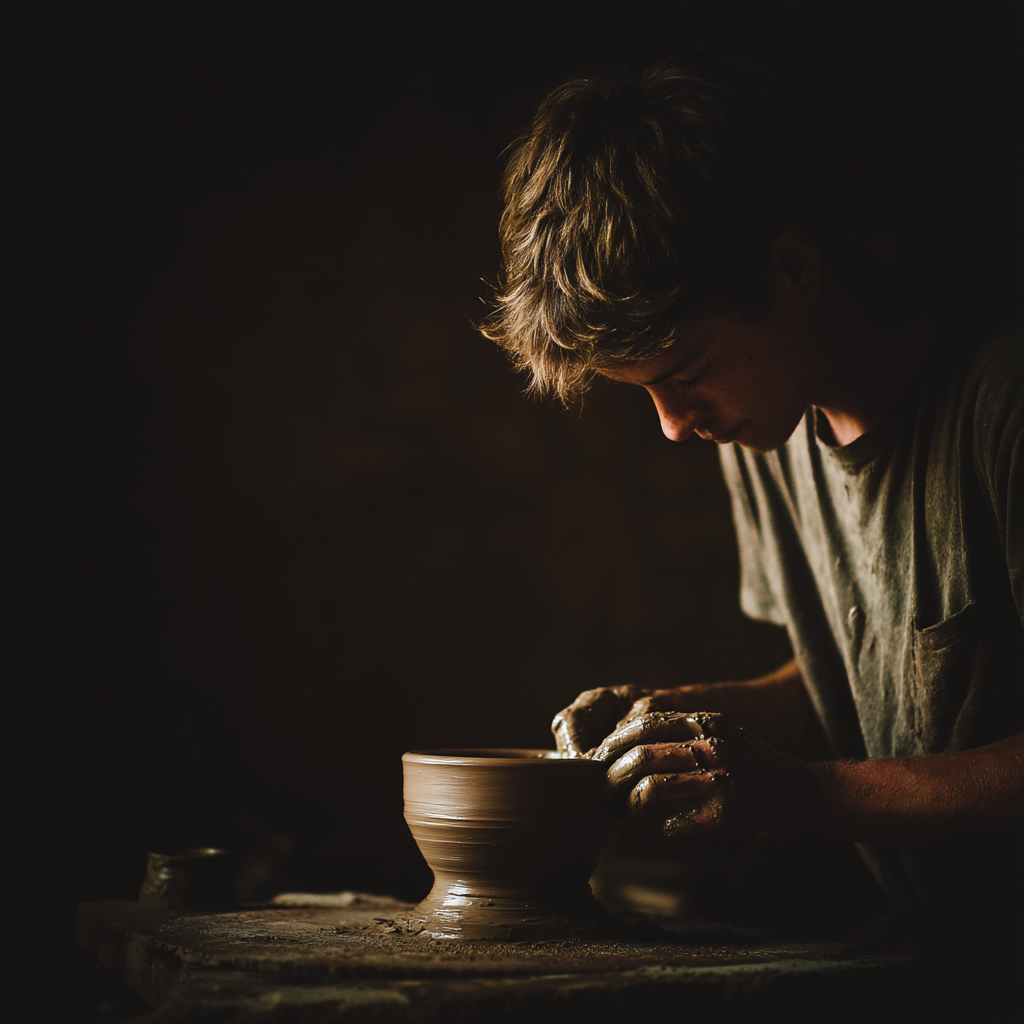“But the fruit of the Spirit is love, joy, peace, patience, kindness, goodness, faithfulness, gentleness, self-control. Against such things there is no law.” – Galatians 5:22-23 (NKJV)
Introduction:
In our daily walk, the struggle between genuine essence and the allure of societal approval confronts us. We often feel a tension between the world’s definition of success and the intrinsic worth that God sees within us.
Key Point Summary:
The journey from superficiality to authenticity, guided by the fruit of the Spirit, is one of embracing God’s true vision for us over the world’s fleeting validations.
Devotional Story:
In a realm where two villages stood side by side, the village of Maskara was a place of outward appearances. Every villager wore intricate masks, representing their status, achievements, and societal approvals. The masks were adorned with jewels for every applause and grew larger with each new adornment.
“For man looks at the outward appearance, but the LORD looks at the heart.” – 1 Samuel 16:7 (NKJV)
Across the river was Lumina. Here, no masks were worn. Instead, villagers carried lanterns that emanated varying intensities of light. The light wasn’t derived from wealth or societal nods, but from the authenticity and purity of one’s heart.
“Let your light so shine before men, that they may see your good works and glorify your Father in heaven.” – Matthew 5:16 (NKJV)
Yearly, a grand marketplace was erected between the two settlements. The Maskarans flaunted their ornate masks, while Luminans proudly displayed their lanterns, radiating pure, undulating light.
Young Eli of Maskara, his neck aching under his mask, ventured to Lumina’s stalls. He encountered Lila, whose lantern shone so brilliantly it dimmed the jewels on Eli’s mask.
“Why doesn’t such brightness weigh you down?” Eli pondered aloud.
Lila, her eyes mirroring her lantern’s glow, replied, “The true light comes from within, reflecting our connection with God, our love for others, and our genuine selves.”
“…God is light and in Him is no darkness at all.” – 1 John 1:5 (NKJV)
Moved, Eli shed his mask, feeling an unfamiliar lightness. Handing him a modest lantern, Lila whispered, “Nurture this with truth, love, and faith.”
As days turned to years, Eli’s lantern glowed ever brighter. Maskarans, inspired by his transformation, began to exchange their masks for lanterns. The once stark division between the villages blurred, becoming a unified haven where outward accolades paled before the radiant glow of genuine hearts.
“And let us consider one another in order to stir up love and good works.” – Hebrews 10:24 (NKJV)
Contextual Insight:
Historically, cultures have often emphasized outward achievements and symbols of status. However, biblical teachings consistently advocate for the inner character and heart’s condition as God’s primary concern.
Personal Reflection:
1. Are there “masks” you wear to fit into societal norms?
2. How can you cultivate and demonstrate the fruits of the Spirit in your life?
3. What steps can you take to prioritize authenticity over superficiality?
Practical Application:
1. Dedicate time daily for self-reflection and prayer, seeking God’s guidance to nurture your authentic self.
2. Engage in acts of kindness and service, allowing the fruits of the Spirit to manifest in your actions.
3. Seek fellowship with believers who encourage genuine growth and authenticity.
Prayer:
Dear Lord, guide me on my journey from superficiality to authenticity. Let the fruits of Your Spirit flourish within me, overshadowing worldly validations. May my heart and actions reflect Your true purpose for me. Amen.
Conclusion:
While the world may pull us towards fleeting validations, God calls us towards genuine essence and character. By embracing and nurturing the fruits of the Spirit, we can shine with a light that’s true, undimmed by the masks society offers.
“And let us consider one another in order to stir up love and good works.” – Hebrews 10:24 (NKJV)
Further Reading:
1. James 1:22-25 (NKJV)
2. Romans 12:1-2 (NKJV)
3. “The Authentic Christian Life” by Richard J. Foster
Faith Notes:
The fruits of the Spirit, as mentioned in Galatians, aren’t just virtues but evidence of God’s transformative work within us, guiding us to lead a life in tune with His purpose.
Reader Participation:
Have you experienced a shift from superficiality to authenticity in your faith journey? Share your story with us and inspire fellow believers.
“Therefore, if anyone is in Christ, he is a new creation; old things have passed away; behold, all things have become new.” – 2 Corinthians 5:17 (NKJV)




